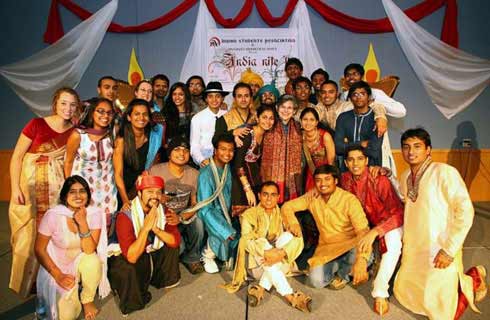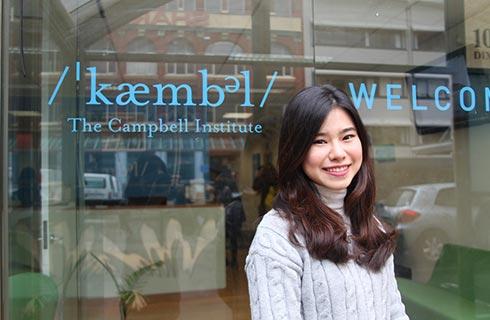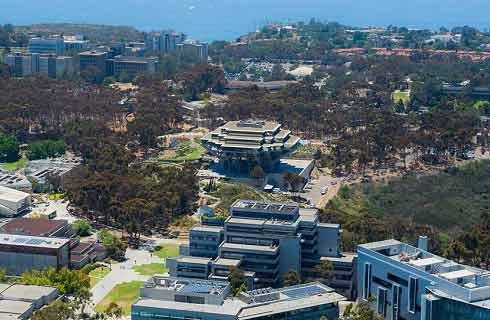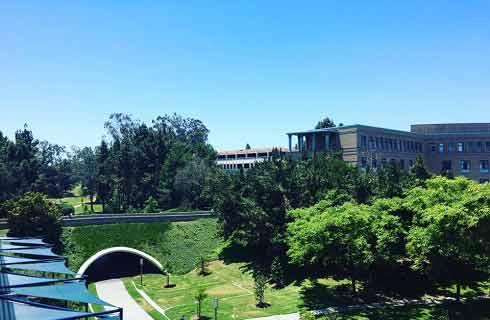- IDP China>
- 课程库>
- 工程与技术>
- 工程学及其相关技术>
- 电气电子工程技术>
- BEng (Hons) Electrical and Electronic Engineering (Hertfordshire)
电气与电子工程(荣誉)学士学位(赫特福德郡)
BEng (Hons) Electrical and Electronic Engineering (Hertfordshire)

学历文凭
Bachelor Degree with Honours

专业院系

开学时间

课程时长

课程学费

国际学生入学条件
A levels to include Maths and either Physics or Technology or engineering based subjects excluding General Studies/Critical Thinking BTEC Extended Diploma in Engineering MMP to include Merit in Further Maths.
Access to Engineering Diploma with 45 Level 3 credits at Merit to include Maths and Science or Principles units. Any additional L3 credits must be at Merit.
Engineering Advanced Diploma to include A level Maths as ASL component.
IB - 72 points from a minimum of 2 HL subjects at grade 4 or above to include HL Maths and Physics (with the remaining points to come from a combination of HL, SL and Core).
GCSE Maths at grade 4 (C), English Language at grade 4 (C) or above.
All students from non-majority English speaking countries require proof of English language proficiency. The following qualifications and grades will be considered:
- GCSE English language grade 4 or above
- IELTS 6.0 (with no less than 5.5 in any band) Test of English as a Foreign Language (TOEFL) 72 with band scores of reading 18, writing 17, listening 17, speaking 20
IDP—雅思考试联合主办方

雅思考试总分
6.0
- 雅思总分:6
- 托福网考总分:72
- 托福笔试总分:160
- 其他语言考试:Pearson Test of English (PTE) 51 (with no less than 42 in any band)
CRICOS代码: H600
申请截止日期: 请与IDP联系 以获取详细信息。
课程简介
This course is designed to enable you to study a broad range of topics similar to those of the more specific courses but in a more flexible way, allowing you to specialise at a later stage. You will develop the latest expertise in the fields of digital signal processing principles, microelectronic & VLSI design practice, robotics and neural networks, power systems applications and implementation, and advanced power conversion and control application trends. You will study engineering mathematics, introduction to electronic systems, sustainable business of electronics, digital electronics and computer organisation, engineering applications of mathematics, electrical and electronic theory, electronic engineering practice, computer programming for electronics engineers. You will study further engineering mathematics, project management and product development, digital design and embedded systems, data acquisition and control systems, electronic communication systems, real-time systems and programming, electrical engineering and power control, and mini projects (electrical). Optional Sandwich Placement or Study Abroad year available.
相关申请
 预科
预科 奖学金
奖学金 实习机会
实习机会 在校学习
在校学习 跨境学习
跨境学习 校园授课-线上开始
校园授课-线上开始 在线/远程学习
在线/远程学习
开学时间&学费
学费信息仅供参考,请与IDP联系以获取详细信息
| 开学时间 | 时长 | 学费 | 地点 |
|---|---|---|---|
| 暂无 | 暂无 | 暂无 | 暂无 |
本校相关课程

研究生旅游和款待途径(普利茅斯大学国际学院)
学历文凭
Foundation for Postgraduate
开学日期
课程费用总额


研究生出版途径(普利茅斯大学国际学院)
学历文凭
Foundation for Postgraduate
开学日期
课程费用总额


旅游学本科课程(普利茅斯大学国际学院)
学历文凭
Foundation for Undergraduate
开学日期
课程费用总额


海上商务本科衔接课程(普利茅斯大学国际学院)
学历文凭
Foundation for Undergraduate
开学日期
课程费用总额


海上商务本科衔接课程(普利茅斯大学国际学院)
学历文凭
Foundation for Undergraduate
开学日期
课程费用总额


本科法律途径(普利茅斯大学国际学院)
学历文凭
Foundation for Undergraduate
开学日期
课程费用总额

其他相关课程

工程科学硕士(网络系统和电信)
 斯威本科技大学
斯威本科技大学泰晤士高等教育世界大学排名:282
学历文凭
Masters Degree (Coursework)
开学日期
课程费用总额


工程学硕士(电气和电子工程)
 皇家墨尔本理工大学
皇家墨尔本理工大学学历文凭
Masters Degree (Coursework)
开学日期
课程费用总额


工程学研究生文凭(电子)
 阿德莱德大学
阿德莱德大学学历文凭
Graduate Diploma
开学日期
课程费用总额


专业工程学硕士(电力)
 悉尼大学
悉尼大学泰晤士高等教育世界大学排名:54
学历文凭
Masters Degree (Coursework)
开学日期
课程费用总额


专业工程学硕士(电信)
 悉尼大学
悉尼大学泰晤士高等教育世界大学排名:54
学历文凭
Masters Degree (Coursework)
开学日期
课程费用总额


专业工程学硕士(电气)
 悉尼大学
悉尼大学泰晤士高等教育世界大学排名:54
学历文凭
Masters Degree (Coursework)
开学日期
课程费用总额









 英国
英国
